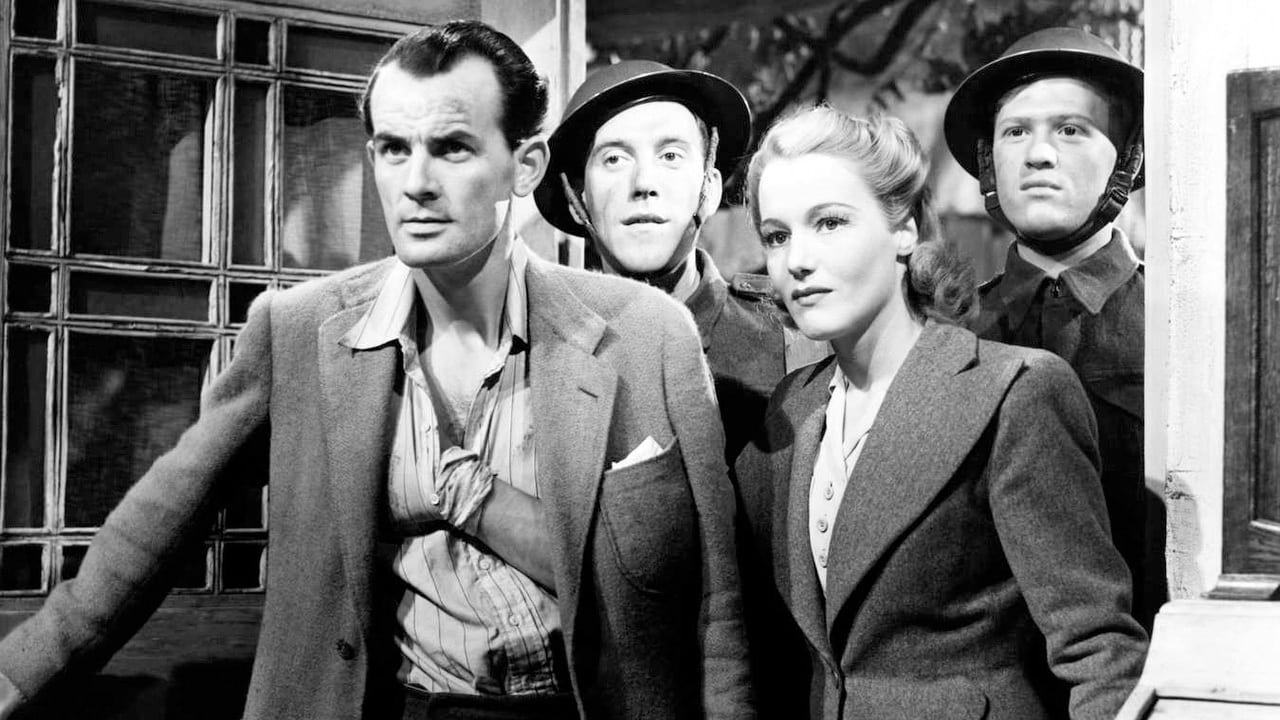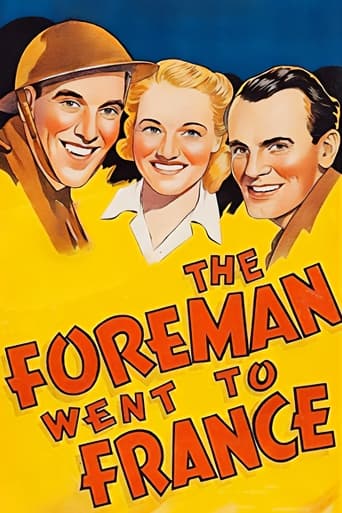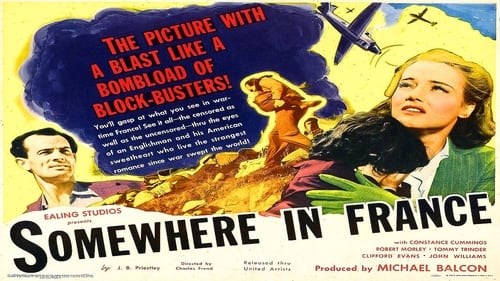




Very very predictable, including the post credit scene !!!
View MoreAlthough it has its amusing moments, in eneral the plot does not convince.
View MoreAt first rather annoying in its heavy emphasis on reenactments, this movie ultimately proves fascinating, simply because the complicated, highly dramatic tale it tells still almost defies belief.
View MoreExcellent and certainly provocative... If nothing else, the film is a real conversation starter.
View MoreThis is an excellent war film from Ealing which depicts true events.It succeeds despite the lack of acting skills on the part of Tommy Grinder.What is rather interesting about this film is the way it highlights the activities of enemy agents and the fifth column,lifesaving the more famous"Next Of Kin".With the exception of the boat captain nearly every Frenchman is depicted as in league with enemy,hardly very flattering but obviously reflecting a common held view at that time.Even the army officer turns out to be an enemy agent.Gordon Jackson is impressive in an early role and Constance Cummings is clearly cast with the American market in mind.
View MoreExciting adventure, with nice moments of humour and a bit of stiff- upper-lip romance, about the daring exploits of a factory foreman (Clifford Evans) who single handed goes over to France in June 1940 to retrieve some vital machinery before it falls into the hands of the advancing Germans. Vividly shot in black and white, with music by William Walton and script partly by J. B. Priestley, it portrays the tragedy of the French collapse and the terrible toll on civilians. In a commandeered British Army lorry with two Tommies (Gordon Jackson and Tommy Trinder) and a blonde American secretary (Constance Cummings), commandeered as interpreter, he finds the machines and heads for the coast, but then the troubles start. They are strafed by German fighters, attacked by German dive bombers, fight through German infantry and shoot their way out of a German-held château. More sinister in a way are their encounters with fascists, collaborators and fifth-columnists. To viewers at the time, this collection of slime represented not only the shameful Vichy régime over the Channel but also the internal danger Britain could face.Highly recommended, both as a period piece that gives you a window into that dangerous time and as an inspiring quest. Under challenge an ordinary man finds that he has the qualities of a hero, acquires loyal helpers, overcomes his evil adversaries, brings home the treasure and wins the beautiful girl.
View MoreIt has been a decade or more since I last saw this film. In 1942 it must have been very close to British audience. Nowadays most people still are aware of the evacuation from Dunkirk (Operation Dynamo) but the evacuation from Normandy and other points along the coast (Operation Ariel) is far less well known even although nearly as many British troops were brought home by Ariel as by Dynamo. The film did not dwell too much on the grim conditions (the audience wanted a bit of escapism after all) but conveyed the notion that no-one knows when they will be called on to "do their bit" for victory and hopefully rise to the occasion.By the time of the release of the film the Battle of Midway had been won, the Germans had 57 tanks in North Africa and Generals January and February had taken their toll of the Germans in the Eastern Front. Although the Battle of the Atlantic had yet to be won the audience had grounds for optimism. The film had to have been made before it was clear that the tide had turned so it was quite remarkable that it should have hit just the right note.
View MoreClifford Evans is an industrial foreman sent to France in 1940 to retrieve three "special-purpose machines" before the invading Germans can get their hands on them. He has nothing but trouble getting the job done.If you enjoyed Hitchcock's "The Lady Vanishes" you ought to enjoy this because it's a similar combination of serious themes -- adventure, mystery, intrigue, death -- overlain with a thick impasto of comedy.Essentially it's a "journey" film. Evans commandeers a truck manned by two lost British soldiers -- Tommy Trinder and an impossibly young Gordon Jackson. In fact there are quite a few familiar figures in the cast, including Mervyn Johns, Francis L. Sullivan, and John Williams. All are in minor roles. Williams is a Fifth Columnist masquerading as a British officer, but it's hard to imagine him as anything other than a detective or some kind of investigator. There are nights when I lull myself to sleep trying to list his many investigators and policemen.Anyway, the truck with its load of precious machines makes its way through the byways of a France that is rapidly being overrun by the German army. Evans and the soldiers pick up a pretty blond American girl. (There must always be an attractive young lady around.) Next in line, of course, is a nun with a dozen children. The first little kid they hoist aboard has to pee. Nothing but tribulations.It's enlivened, if that's the word, by some of the wisecracks of the light-hearted and optimistic Tommy Trinder. "You know what Nelson said -- England expects. That's why they call it the Mother Country." And, "You can take a horse to water but a pencil must be lead." Actually, now that I mull that over a bit, it's pretty funny.The frolic is interrupted by the nasty Nazis who bomb hospitals and strafe roads filled with refugees. The refugees wind up dead, too, though not lingered over. Little of the horror is lingered over. It's not that kind of movie, any more than "The Lady Vanishes" was.You know, what's most surprising about the movie is not that it's pretty good, which it is, including its special effects, but that it was made at all.After all, this was released in 1942, a bad year for the Allies. Britain in particular was suffering. The Yanks had just been swept up in the war and not yet effectively mobilized. Cities like London and Coventry were bombed in a way that New York and Baltimore never were. Rommel was doing fine in North Africa. England was being strangled by U-boats in the Battle of the Atlantic. Russia was reeling. And here, under the most stringent conditions, a jolly good movie is produced and released.An admirable job, considering. Ealing wasn't the studio producing splendid comedies that it was to become, but it's impossible to complain about "The Foreman Went to France." It would be an enjoyable divertissement under any circumstances.
View More